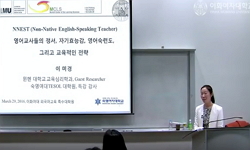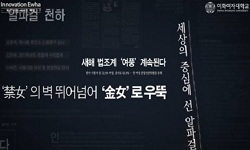이 연구의 목적은 롤 모델이 자신감과 자기효능감을 매개로 창업의도에 미치는 영향을 알아보기 위함이다. 이를 위해 서울소재 대학생 120명의 자료를 분석하여 회귀분석을 하였고 창업의...
http://chineseinput.net/에서 pinyin(병음)방식으로 중국어를 변환할 수 있습니다.
변환된 중국어를 복사하여 사용하시면 됩니다.
- 中文 을 입력하시려면 zhongwen을 입력하시고 space를누르시면됩니다.
- 北京 을 입력하시려면 beijing을 입력하시고 space를 누르시면 됩니다.
대학생의 롤 모델이 창업의도에 미치는 영향 : -자신감과 자기효능감의 매개효과를 중심으로- = The Effect of Role Models of College Students on the Entrepreneurial Intention: Focused on the Mediated Effects of Confidence and Self-efficacy
한글로보기https://www.riss.kr/link?id=T13515808
- 저자
-
발행사항
서울 : 숭실대학교 일반대학원, 2014
-
학위논문사항
학위논문(석사) -- 숭실대학교 일반대학원 대학원 , 벤처·중소기업학과(일원) , 2014. 8
-
발행연도
2014
-
작성언어
한국어
- 주제어
-
발행국(도시)
서울
-
형태사항
51p. 26cm
-
일반주기명
숭실대학교 논문은 저작권에 의해 보호받습니다.
The Effect of Role Models of College Students on the Entrepreneurial Intention: Focused on the Mediated Effects of Confidence and Self-efficacy
지도교수:정대용
참고문헌: p. - 소장기관
-
0
상세조회 -
0
다운로드
부가정보
국문 초록 (Abstract)
이를 위해 서울소재 대학생 120명의 자료를 분석하여 회귀분석을 하였고 창업의도에 영향을 줄 것으로 가정한 변수 중 모든 변수에서 유의한 영향을 주는 것으로 나타났다.
본 연구는 잠재적 창업가에게 롤 모델과 창업의도 사이에 자신감과 자기효능감이 매개효과를 갖는지를 살펴보기 위한 탐색적 연구이다.
가설검증을 위해 빈도분석과 기술통계 하였고 매개효과분석을 위해 단순 위계적 회귀분석을 실시하였으며 실증분석 결과는 다음과 같다.
첫째, 롤 모델의 인식이 창업의도에 유의한 정(+)의 영향을 미치는 것으로 나타났다. 둘째, 롤 모델이 자신감에 유의한 정(+)의 영향을 미치는 것으로 나타났다. 셋째, 롤 모델과의 인식이 자기효능감에 유의한 정(+)의 영향을 미치는 것으로 나타났다. 넷째, 자신감이 창업의도에 유의한 정(+)의 영향을 미치는 것으로 나타났다. 다섯째, 자기효능감이 창업의도에 유의한 정(+)의 영향을 미치는 것으로 나타났다. 여섯째, 롤 모델과 업무적 제안/경험, 외부근무경험과 창업의도와의 관계에서는 자신감이 매개조건을 충족시키지 못해 부분매개효과를 나타났다. 일곱째, 자기효능감은 롤 모델과의 업무적 제안/경험, 외부근무경험과 창업의도와의 관계에서는 자기효능감이 완전매개효과를 나타내는 것으로 밝혀졌다.
전반적으로 자기효능감이 롤 모델과의 교류 및 경험과 창업의도와의 관계에 완전 매개효과를 갖는 것을 알 수 있었으며 롤 모델과의 교류 및 경험은 직접적으로 창업의도에 영향을 주지 못하며 자기효능감으로 인해 창업의도가 높아지는 것을 확인 할 수 있었다.
즉 롤 모델과의 교류 및 경험이 많을수록 자기효능감이 높아지고 이로 인해 창업의도가 높아지는 것을 확인 할 수 있었다.
이러한 결과는 대학생의 창업의도에서 롤 모델에 관한 교육이 이뤄져야하며 자신감보다 자기효능감이 중요하다는 것을 확인 하였고 결과적으로 교육 정책적 시사점을 제공해 주었다. 마지막으로 본 연구의 결과를 토대로 연구의 의의와 제한점을 제시하였다.
이 연구의 목적은 롤 모델이 자신감과 자기효능감을 매개로 창업의도에 미치는 영향을 알아보기 위함이다.
이를 위해 서울소재 대학생 120명의 자료를 분석하여 회귀분석을 하였고 창업의도에 영향을 줄 것으로 가정한 변수 중 모든 변수에서 유의한 영향을 주는 것으로 나타났다.
본 연구는 잠재적 창업가에게 롤 모델과 창업의도 사이에 자신감과 자기효능감이 매개효과를 갖는지를 살펴보기 위한 탐색적 연구이다.
가설검증을 위해 빈도분석과 기술통계 하였고 매개효과분석을 위해 단순 위계적 회귀분석을 실시하였으며 실증분석 결과는 다음과 같다.
첫째, 롤 모델의 인식이 창업의도에 유의한 정(+)의 영향을 미치는 것으로 나타났다. 둘째, 롤 모델이 자신감에 유의한 정(+)의 영향을 미치는 것으로 나타났다. 셋째, 롤 모델과의 인식이 자기효능감에 유의한 정(+)의 영향을 미치는 것으로 나타났다. 넷째, 자신감이 창업의도에 유의한 정(+)의 영향을 미치는 것으로 나타났다. 다섯째, 자기효능감이 창업의도에 유의한 정(+)의 영향을 미치는 것으로 나타났다. 여섯째, 롤 모델과 업무적 제안/경험, 외부근무경험과 창업의도와의 관계에서는 자신감이 매개조건을 충족시키지 못해 부분매개효과를 나타났다. 일곱째, 자기효능감은 롤 모델과의 업무적 제안/경험, 외부근무경험과 창업의도와의 관계에서는 자기효능감이 완전매개효과를 나타내는 것으로 밝혀졌다.
전반적으로 자기효능감이 롤 모델과의 교류 및 경험과 창업의도와의 관계에 완전 매개효과를 갖는 것을 알 수 있었으며 롤 모델과의 교류 및 경험은 직접적으로 창업의도에 영향을 주지 못하며 자기효능감으로 인해 창업의도가 높아지는 것을 확인 할 수 있었다.
즉 롤 모델과의 교류 및 경험이 많을수록 자기효능감이 높아지고 이로 인해 창업의도가 높아지는 것을 확인 할 수 있었다.
이러한 결과는 대학생의 창업의도에서 롤 모델에 관한 교육이 이뤄져야하며 자신감보다 자기효능감이 중요하다는 것을 확인 하였고 결과적으로 교육 정책적 시사점을 제공해 주었다. 마지막으로 본 연구의 결과를 토대로 연구의 의의와 제한점을 제시하였다.
다국어 초록 (Multilingual Abstract)
This study is an explosive research to determine whether confidence and self-efficacy have mediated effects between role models and the intention to start up a business. In order to verify hypothesis, frequency analysis and descriptive statistics were used, and hierarchical regression analysis was carried out to analyze mediated effects. The empirical analysis results are as following.
First, recognition of role models has been found to have a meaningful proportionate effect on the intention to start up a business. Second, role models have a meaningful proportionate effect on one’s confidence. Third, recognition of role models has a meaningful proportionate effect on one’s self-efficacy. Firth, confidence has a meaningful proportionate effect on the intention to start up one’s own business. Sixth, on the relationship between the subjects’ work experiences with their role models as well as extra work experience and their intention to start up a business, confidence has a partial mediated effect since it failed to fully meet certain requirements. Seventh, on the relationship between the subjects’ work experiences with their role models as well as extra work experience and their intention to start up a business, self-efficacy has a full mediated effect.
In general, it was found that the subjects’ self-efficacy has a full mediated effect on the relationship between the experience of working with their role models and their intention to start up a business, which means that such experience does not directly affect one’s intention to launch a business, and it is self-efficacy that increased the intention to start up a company. In other words, the more experiences one has working with their role models, the higher his or her self-efficacy becomes, therefore increasing the intention to start up a business.
These research outcomes offer lessons in terms of education policies that education about role models should be done when encouraging university students to start up business, and that developing self-efficacy, rather than confidence, is more important. In conclusion, I presented the meaning and limitations of this study based on the research outcomes.
The goal of this study is to examine the effect of role models on the intention to start up a business with confidence and self-efficacy as a mediator variable. To this end, I conducted regression analysis of data collected from 120 undergraduates of ...
The goal of this study is to examine the effect of role models on the intention to start up a business with confidence and self-efficacy as a mediator variable. To this end, I conducted regression analysis of data collected from 120 undergraduates of universities located in Seoul to discover that they have mediated impacts on all variables, which were assumed to affect the intention to launch a business.
This study is an explosive research to determine whether confidence and self-efficacy have mediated effects between role models and the intention to start up a business. In order to verify hypothesis, frequency analysis and descriptive statistics were used, and hierarchical regression analysis was carried out to analyze mediated effects. The empirical analysis results are as following.
First, recognition of role models has been found to have a meaningful proportionate effect on the intention to start up a business. Second, role models have a meaningful proportionate effect on one’s confidence. Third, recognition of role models has a meaningful proportionate effect on one’s self-efficacy. Firth, confidence has a meaningful proportionate effect on the intention to start up one’s own business. Sixth, on the relationship between the subjects’ work experiences with their role models as well as extra work experience and their intention to start up a business, confidence has a partial mediated effect since it failed to fully meet certain requirements. Seventh, on the relationship between the subjects’ work experiences with their role models as well as extra work experience and their intention to start up a business, self-efficacy has a full mediated effect.
In general, it was found that the subjects’ self-efficacy has a full mediated effect on the relationship between the experience of working with their role models and their intention to start up a business, which means that such experience does not directly affect one’s intention to launch a business, and it is self-efficacy that increased the intention to start up a company. In other words, the more experiences one has working with their role models, the higher his or her self-efficacy becomes, therefore increasing the intention to start up a business.
These research outcomes offer lessons in terms of education policies that education about role models should be done when encouraging university students to start up business, and that developing self-efficacy, rather than confidence, is more important. In conclusion, I presented the meaning and limitations of this study based on the research outcomes.
목차 (Table of Contents)
- 제 1 장 서론 1
- 1.1 연구의 배경 및 목적 1
- 제 2 장 이론적 배경 및 가설 설정 3
- 2.1 롤 모델과 창업의도 3
- 2.2 롤 모델과 자기효능감 5
- 제 1 장 서론 1
- 1.1 연구의 배경 및 목적 1
- 제 2 장 이론적 배경 및 가설 설정 3
- 2.1 롤 모델과 창업의도 3
- 2.2 롤 모델과 자기효능감 5
- 2.3 자기효능감과 자신감 7
- 2.4 자기효능감과 창업의도 8
- 제 3 장 연구모형 및 연구방법 8
- 3.1 연구모형 8
- 3.2 조사대상 및 자료수집 9
- 3.2.1 조사대상 및 자료수집 9
- 3.2.2 변수의 조작적 정의 및 측정도구의 구성 9
- 3.2.3 자료분석방법 10
- 제 4 장 실증분석 12
- 4.1 조사대상자의 일반적 특성 12
- 4.1.1 일반적 특성 12
- 4.1.2 롤 모델에 대한 인식과 실태 16
- 4.2 타당도 및 신뢰도 19
- 4.2.1 롤 모델 측정도구의 타당도 및 신뢰도 20
- 4.2.2 자신감 측정도구의 타당도 및 신뢰도 22
- 4.2.3 자기효능감 측정도구의 타당도 및 신뢰도 23
- 4.2.4 창업의도 측정도구의 타당도 및 신뢰도 25
- 4.3 가설검정 27
- 4.3.1 롤 모델 요인, 자신감, 자기효능감, 창업의도 상관관계 27
- 4.3.2 롤 모델이 창업의도, 자신감, 자기효능감에 미치는 영향 29
- 4.3.3 자신감과 자기효능감이 창업의도에 미치는 영향 32
- 4.3.4 롤 모델과 창업의도 관계에서 자신감의 매개효과 33
- 4.3.5 롤 모델과 창업의도 관계에서 자기효능감의 매개효과 36
- 4.4 가설검증결과요약 38
- 제 5 장 결론 39
- 참고문헌 41
- 부 록(설문지) 47












